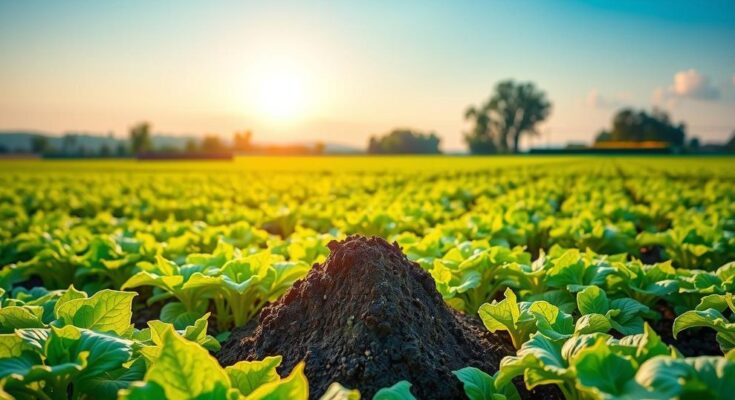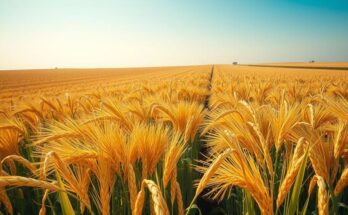Farmers in Malawi are now utilizing organic fertilizers from black soldier fly waste to improve crop yields and address challenges of soil degradation and fertilizer costs. Training programs provided by researchers enable farmers to produce these fertilizers themselves, promoting sustainability and food security.
Farmers in Malawi are successfully utilizing fertilizers derived from black soldier fly waste to enhance their crop yields. This innovative approach was developed to combat soil degradation and mitigate the increasing costs of chemical fertilizers. To promote sustainability, researchers are training local farmers to produce this fertilizer independently, which is vital for long-term agricultural resilience.
In Mzimba District, Fanny Ndhlovu and fellow farmers have witnessed a remarkable improvement in their banana crops. After years of declining yields, they now have the tools to revitalize their farming practices. Ndhlovu expressed, “We have not had a way of reversing this decline” until now, referring to the transformative impact of the new fertilizer.
The rise in chemical fertilizer prices has posed significant challenges for small-scale farmers. Many are unable to afford these inputs, which, coupled with changing weather patterns, has resulted in diminished crop productivity. This project, a collaboration between Mzuzu University and the Science Granting Councils Initiative, aims to address these pressing agricultural challenges.
The fertilizer, a mixture of black soldier fly frass, rice husk biochar, and coffee grounds, has undergone rigorous laboratory analysis to ensure its efficacy. Lead researcher Elija Wanda emphasized the importance of providing a low-cost, sustainable alternative to synthetic fertilizers, which contribute to environmental issues such as greenhouse gas emissions and water pollution.
Malawi’s soils face significant degradation, with nearly 40 percent classified as poor. Soil degradation results in substantial losses for staple crops like maize, which is critical for food security. The project emerges as a potential solution to increase agricultural productivity while minimizing environmental harm.
The project also seeks to train farmers on how to produce and utilize this organic fertilizer. Ndhlovu has already begun sharing her knowledge with others in her village following her training. Black soldier fly farming, although relatively novel in Malawi, has shown promise in improving agricultural productivity at a low cost.
In summary, the utilization of black soldier fly waste as a fertilizer is revolutionizing agriculture in Malawi. This initiative addresses critical issues such as soil degradation and the high costs of chemical fertilizers. Through training and sustainable practices, local farmers can enhance their yields and livelihoods. Continued support and knowledge sharing will further empower these communities and promote food security in Malawi.
Original Source: www.scidev.net




